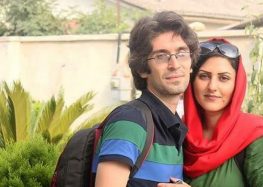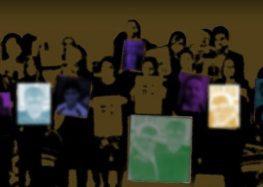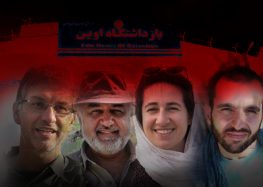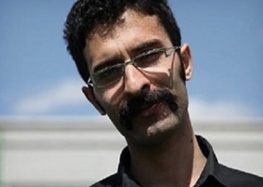Political Prisoner “Wasting Away” as Iran Refuses to Provide Medical Tests For Potentially Cancerous Bone Tumor
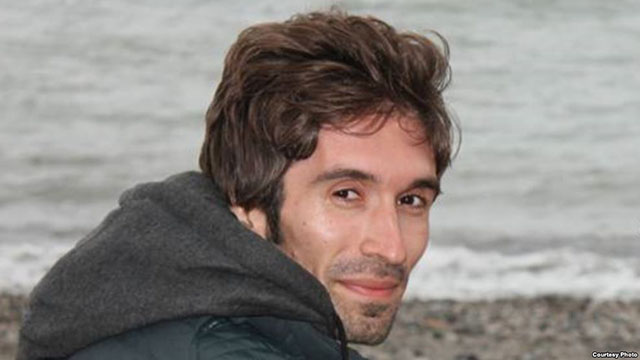 Iranian civil rights activist and political prisoner Arash Sadeghi is being denied medical leave to undergo testing for a bone tumor that could be cancerous.
Iranian civil rights activist and political prisoner Arash Sadeghi is being denied medical leave to undergo testing for a bone tumor that could be cancerous.
A source with knowledge of the case told the Center for Human Rights in Iran (CHRI) that Sadeghi is “wasting away” in Rajaee Shahr Prison in the city of Karaj and was told by his interrogators in 2017 that he would be denied medical treatment.
“Arash was transferred to a hospital in mid-June [2018] after feeling intense pain in his right shoulder and arm,” said the source in an interview on June 28, 2018.
“After tests and scans, it was determined that he has a bone tumor and doctors said he needs to immediately undergo more tests at a cancer center to figure out what kind of tumor it is because if he doesn’t get treatment, it could spread. But so far the prosecutor has not issued a permit and is refusing to meet Arash’s family.”
The source added, “When he was exiled from Evin Prison to Rajaee Shahr [in October 2017], the Revolutionary Guards investigator told Arash, we won’t give you any concessions to teach you a lesson.”
Furlough, temporary leave typically granted to prisoners in Iran for a variety of familial, holiday, and medical reasons, is routinely denied to political prisoners as a form of additional punishment.
Since June 2016, Sadeghi, 38, has been serving a 15-year prison sentence for his peaceful political activities. He was recently distressed by the situation of his wife, prisoner of conscience Golrokh Ebrahimi Iraee, 38, who recently ended a long hunger strike to protest the mistreatment of political prisoners in Iran.
Iraee began serving a six-year prison sentence in October 2016 for the charges of “insulting the sacred” and “propaganda against the state,” primarily for writing an unpublished story about the practice of stoning.
“Arash has been on several long hunger strikes and taking a whole bunch of pills for severe kidney, stomach, intestine and heart problems,” said the source who requested anonymity for security reasons.
“I’ll be honest, he’s getting weaker and sicker every day because he’s not getting the right treatment” added the source. “He’s slowly, silently, wasting away.”
Sadeghi, 36, was arrested on September 6, 2014, at his stationery store in Tehran by the Sarallah Headquarters of the Islamic Revolutionary Guard Corps’ (IRGC) Intelligence Organization. He was detained along with his wife and two friends in the Intelligence Organization-controlled Ward 2-A of Evin Prison.
Sadeghi was released on seven billion Iranian rials (about $230,000) bail seven months later on March 14, 2015. His wife was released on one billion rials (about $33,000) bail.
Initially Sadeghi and Iraee were tried by Branch 15 of the Revolutionary Court in May and July 2015 by Judge Abolqasem Salavati. Iraee was in the hospital and was not able to attend but the judge refused to postpone the trial to hear her defense.
Judge Salavati’s verdict was upheld by Branch 54 of the Appeals Court in March 2016 for the charges of “collusion against national security,” “propaganda against the state,” “spreading lies in cyberspace” and “insulting the founder of the Islamic Republic [Ayatollah Ruhollah Khomeini].”
Past Cases and Fatalities
The case of former political prisoner Alireza Rajaee, who lost part of his face in August 2017 due to sinus cancer that was left untreated in Evin Prison, put the spotlight on the ongoing denial of medical care to political prisoners in Iran.
Three months later, in October 2017, labor activist Mohammad Jarrahi died from thyroid cancer that was left untreated while he was held as a political prisoner in Tabriz Prison. Fellow labor activist Shahrokh Zamani had also died of a heart attack in September 2015 after being denied medical care in Rajaee Shahr Prison.
Political prisoner Omid Kokabee was diagnosed with advanced kidney cancer in 2016 after years of repeatedly being denied treatment for his symptoms in Evin Prison.


